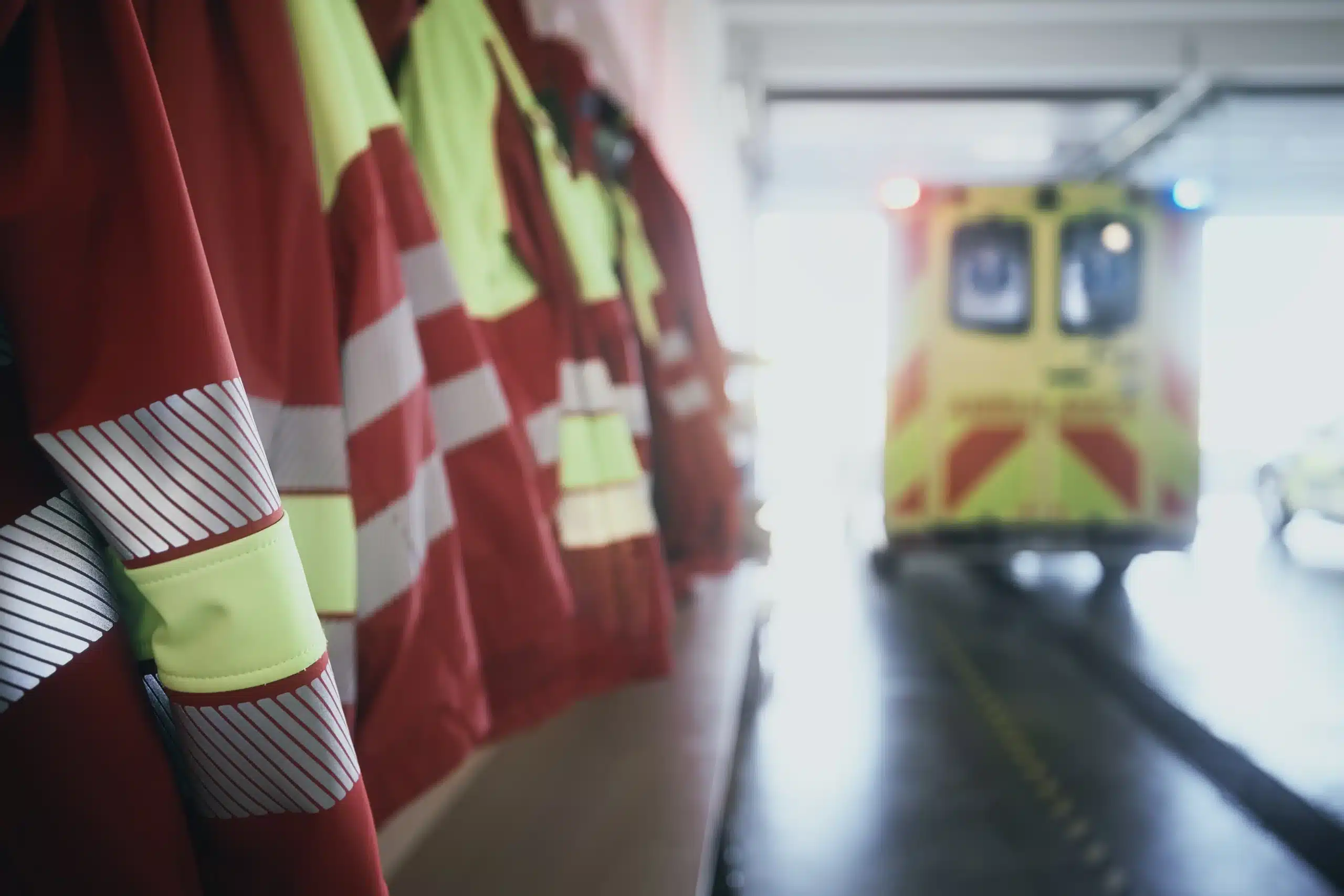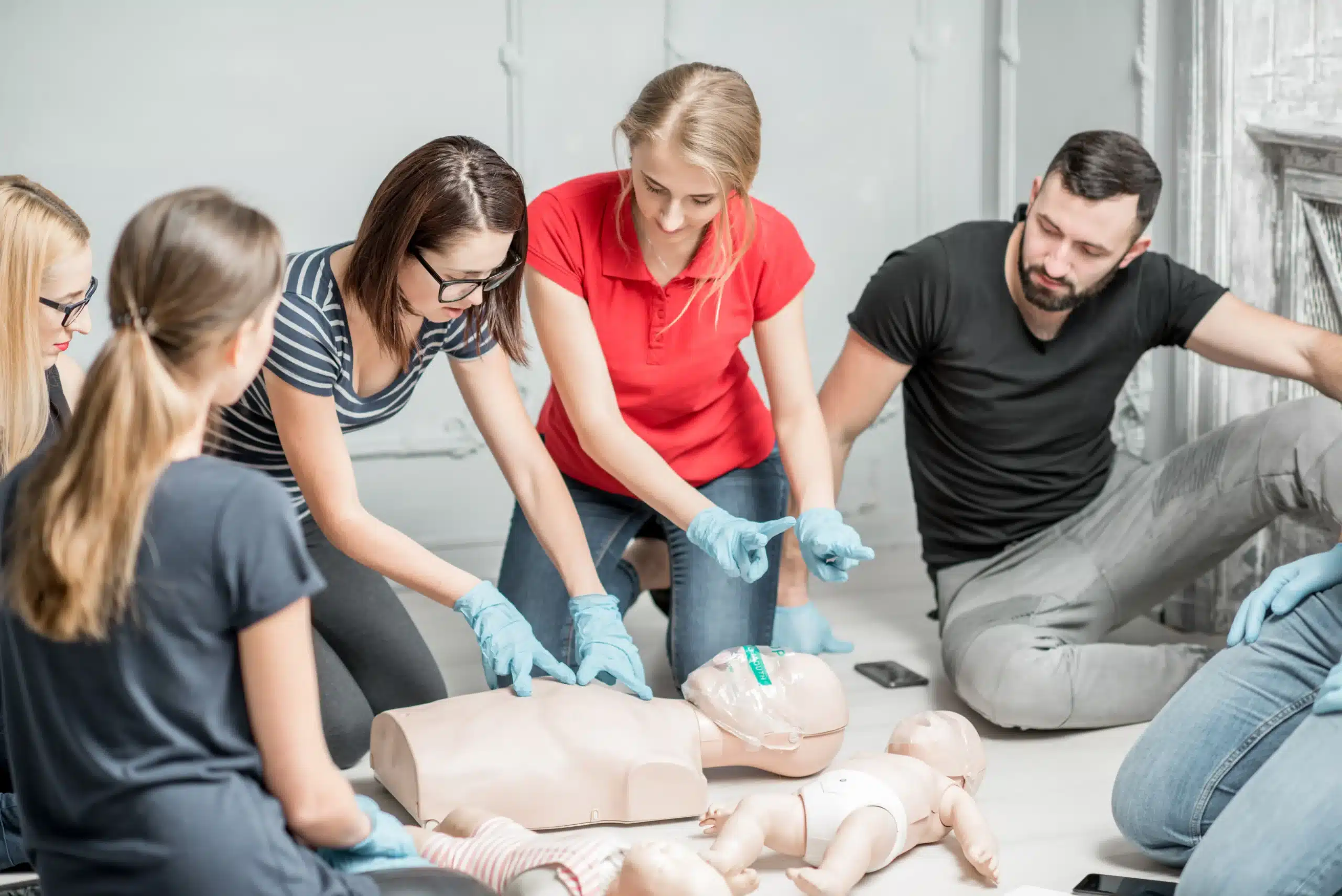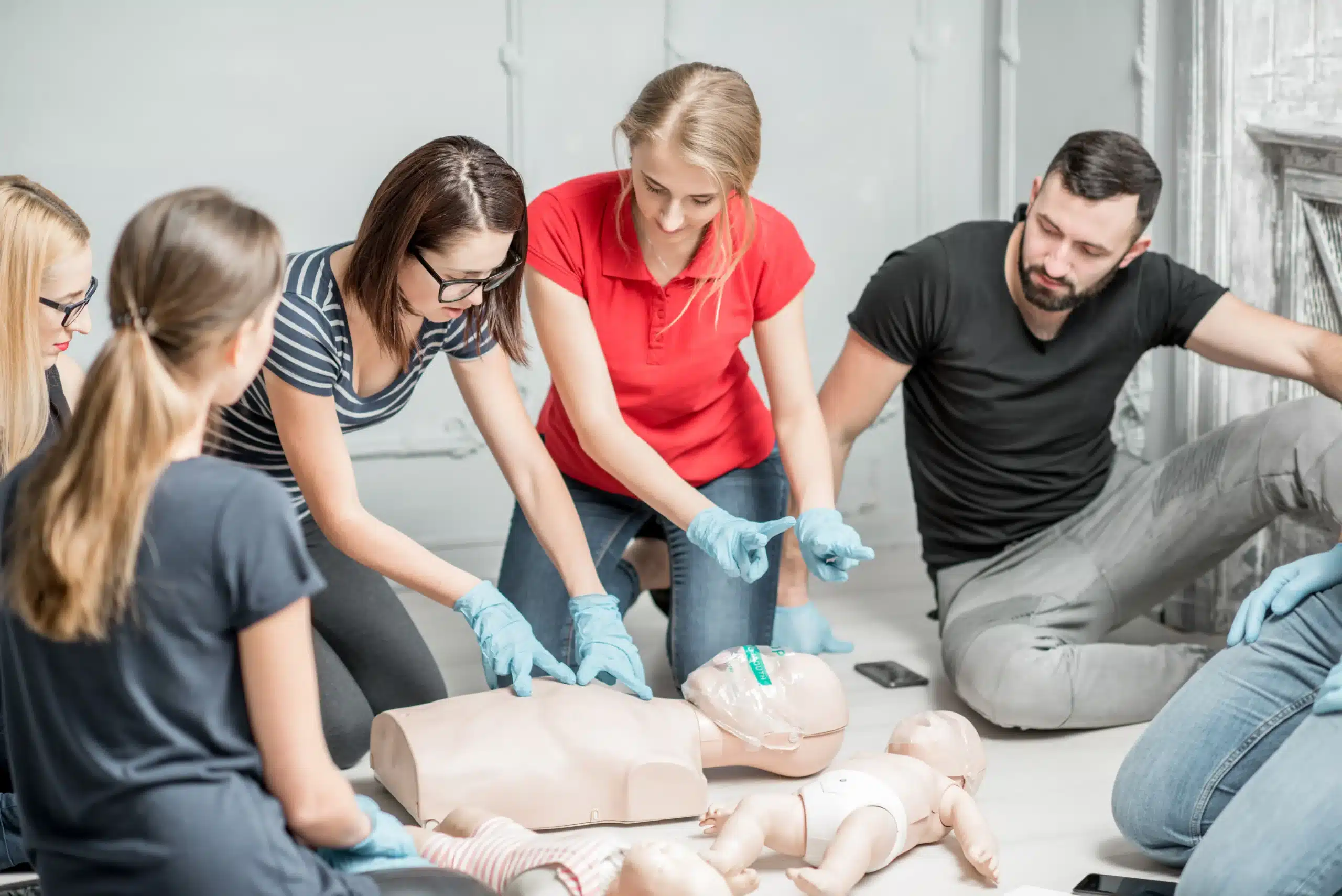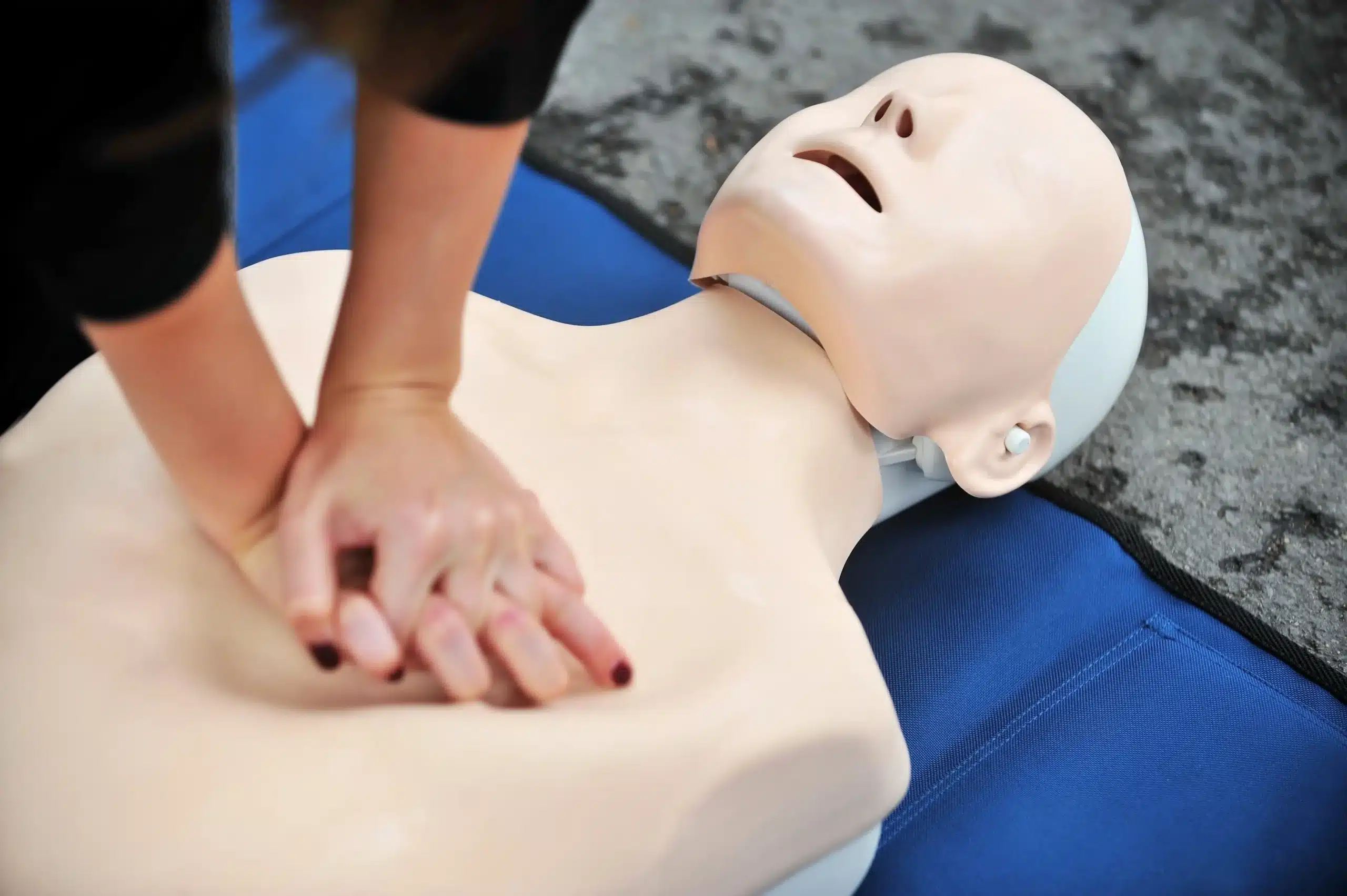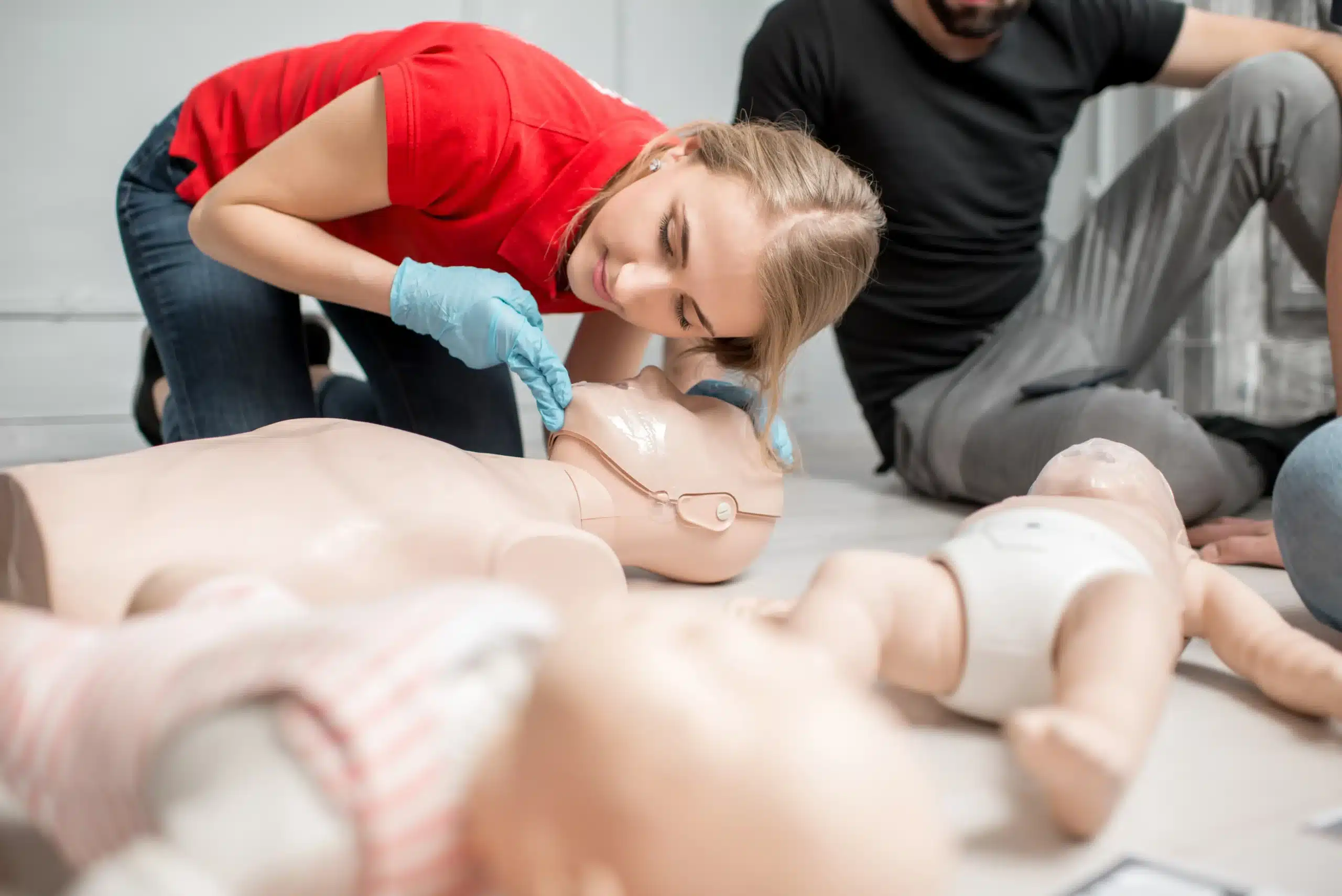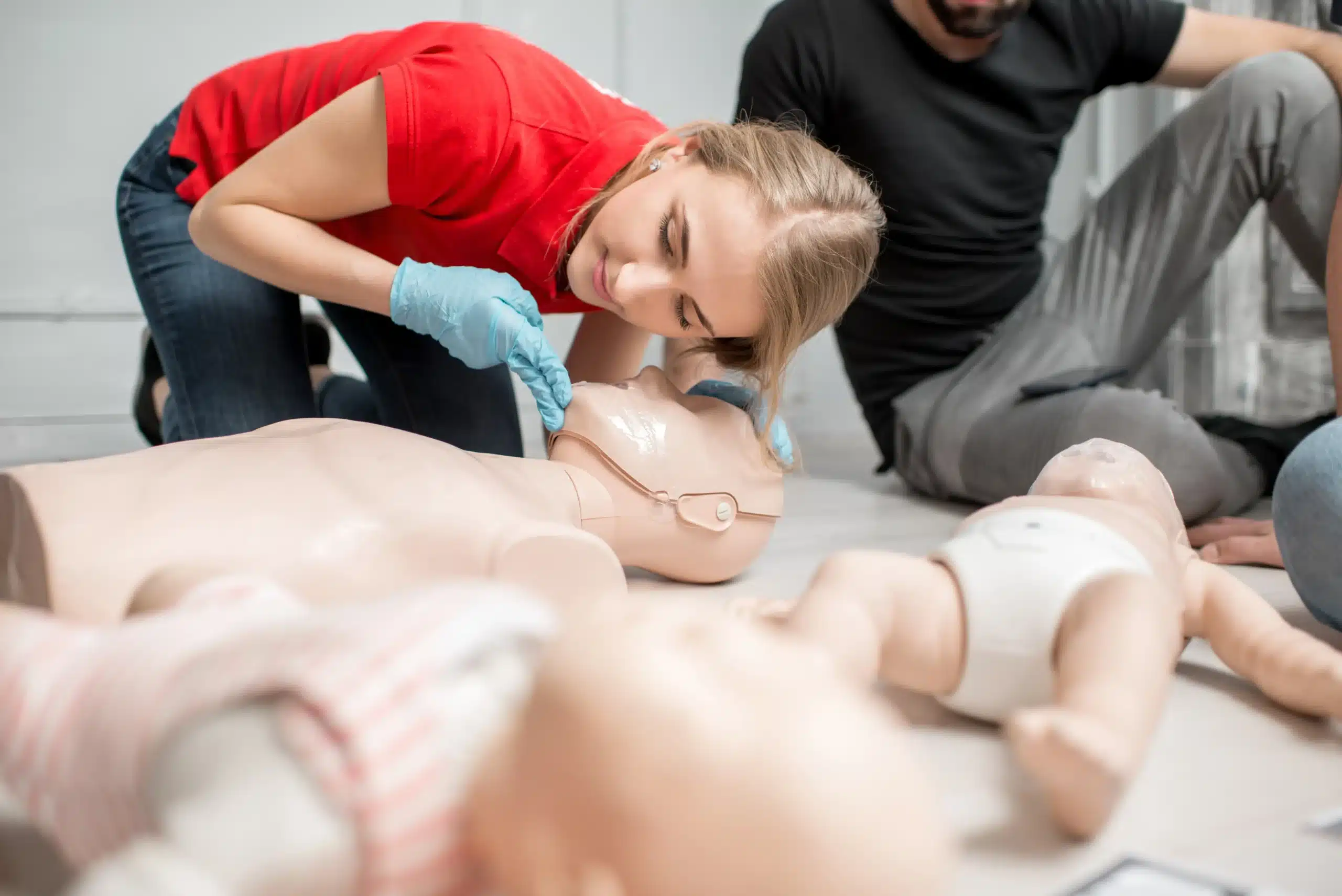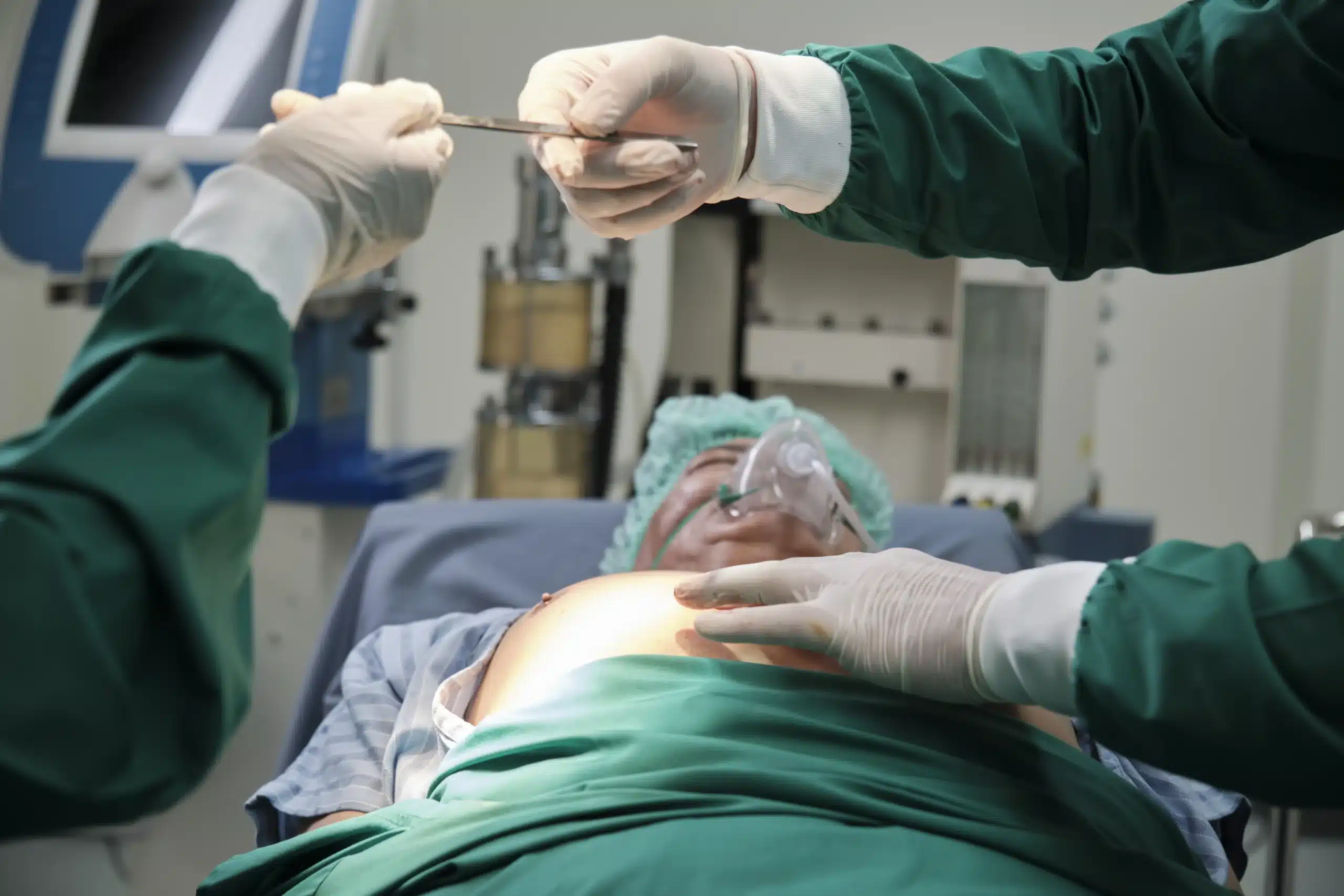Providing high-quality patient care is at the heart of every healthcare professional’s mission. In Windsor, RQI is transforming how healthcare providers maintain their life-saving CPR skills. This innovative approach, known as Resuscitation Quality Improvement, shifts from the traditional two-year recertification to a more continuous, skills-focused model. RQI in Windsor prioritizes short, regular practice sessions, ensuring your skills stay sharp and your confidence remains high. This article will explore the ins and outs of RQI in Windsor, covering everything from the science behind it to the benefits it offers healthcare professionals and the community. We’ll also address common questions and guide you through the process of enrolling in RQI training in Windsor.
Key Takeaways
- RQI offers a modern approach to CPR training: Instead of infrequent recertifications, RQI’s regular practice sessions and real-time feedback help healthcare professionals maintain sharp skills and confidence.
- RQI benefits everyone: Providers gain flexible training and improved competency, while patients benefit from higher-quality CPR and potentially better outcomes.
- Getting started with RQI is easy: Various RQI programs are available in Windsor, making it simple to find training that fits your needs and schedule.
What is RQI?
RQI, or Resuscitation Quality Improvement, represents a significant advancement in CPR training. It moves away from the traditional two-year certification model and adopts a more continuous, skills-focused approach. This innovative program emphasizes consistent practice and real-time feedback to help healthcare professionals maintain peak performance in life-saving resuscitation skills. It’s designed to build confidence and improve patient outcomes through regular, short training sessions. If you’re a healthcare provider in Windsor, understanding RQI is crucial for staying current with best practices in resuscitation.
What is Resuscitation Quality Improvement?
Resuscitation Quality Improvement® (RQI®) verifies the competence of healthcare workers in resuscitation skills. It’s data-driven and evidence-based, offering insights for organizational improvement. Unlike traditional CPR training programs, RQI uses a “low-dose, high-frequency” model. This means short, regular practice sessions to maintain and improve skills over time. This approach helps healthcare providers maintain a higher level of proficiency in CPR. RQI isn’t just about individual skills; it also provides valuable data that organizations can use to improve their resuscitation practices and systems. You can learn more about the program overview on the American Heart Association website.
The Science Behind RQI
RQI is grounded in the principles of mastery learning and simulation-based training. The program uses short, frequent quality improvement sessions that measure and verify competence. This approach helps healthcare providers retain life-saving skills through consistent practice and personalized feedback. RQI programs use simulation stations with real-time feedback, allowing providers to hone their skills in a safe and controlled environment.
Key Features of RQI Training
RQI training offers several key features that distinguish it from traditional CPR courses. The program follows a subscription-based model, providing cognitive and skills modules similar to traditional CPR training but delivered quarterly. This ensures resuscitation skills are kept at the highest standard. Training is completed on a Simulation Station, which provides real-time, audiovisual feedback, guiding providers toward high-quality CPR performance. These frequent, short refresher sessions make it easier to fit training into a busy schedule while improving CPR competence. The focus on regular practice and feedback helps healthcare professionals maintain their skills and confidence in providing effective resuscitation.
How RQI Works in Windsor
RQI, or Resuscitation Quality Improvement, represents a significant shift in how healthcare providers maintain their CPR skills. Unlike traditional CPR classes requiring recertification every two years, RQI uses a “low-dose, high-frequency” model. This approach emphasizes short, regular practice sessions to build and maintain muscle memory and confidence. Healthcare professionals in Windsor can access RQI training through various local providers, making it easier to integrate these essential skills into busy schedules.
The RQI Training Process
The RQI training process combines online learning modules with hands-on practice using advanced simulation technology. You’ll learn the latest resuscitation science and best practices from the American Heart Association, delivered through a partnership with Laerdal Medical and RQI Partners. This blended learning approach allows for flexible scheduling and personalized feedback. The program verifies skills competence and provides valuable insights for organizational improvement.
Training Session Frequency and Duration
Instead of lengthy, infrequent training sessions, RQI focuses on short, quarterly skills sessions. These sessions typically take just a few minutes, making them easy to fit into even the busiest schedules. This frequent practice helps healthcare providers in Windsor maintain peak performance and retain crucial CPR skills. The RQI program delivers this training through quarterly low-dose, high-frequency knowledge and skills sessions.
Integrating RQI into Daily Practice
The short, frequent nature of RQI sessions makes integrating the training into daily practice seamless. Providers can complete sessions during downtime or incorporate them into existing workflows. This approach not only improves CPR competence but also reinforces the importance of these life-saving skills. By consistently refreshing their knowledge and technique, healthcare professionals in Windsor can provide high-quality patient care and potentially improve patient outcomes.
RQI Benefits for Windsor Healthcare Professionals
RQI training offers significant advantages for healthcare professionals in Windsor, impacting everything from patient outcomes to individual skill development. Let’s explore some key benefits:
Improve CPR Quality and Patient Outcomes
The Resuscitation Quality Improvement (RQI) program helps healthcare providers maintain their CPR skills and knowledge, crucial for delivering effective CPR during cardiac arrest. This consistent reinforcement directly correlates with improved patient outcomes. Timely and effective CPR significantly increases survival rates, making RQI a vital tool for Windsor healthcare providers. Learn more about the impact of RQI on the RQI Programs page.
Enhance Skill Retention and Confidence
Traditional CPR training often involves lengthy, infrequent sessions, which can lead to skill decay. RQI takes a different approach, using low-dose, high-frequency education. Frequent, shorter refresher sessions make it easier to fit training into a busy schedule while improving CPR competence. This method enhances skill retention and boosts confidence when responding to emergencies. The American Heart Association’s RQI Program Flyer offers additional details on this approach. Knowing you have consistently practiced your skills makes a real difference in high-pressure situations.
Address Common CPR Training Challenges
Implementing a new training program can present challenges. However, the benefits of RQI outweigh the difficulties. RQI offers efficient CPR skill maintenance through short practice sessions and immediate feedback, helping healthcare professionals stay proficient and confident. This proactive approach ensures providers are always prepared to act decisively. Our RQI Oakland CPR Certification blog post discusses how RQI addresses common training challenges and improves CPR readiness. RQI is changing how healthcare professionals maintain their CPR skills, a vital transformation for ensuring high-quality care in Windsor.
Available RQI Training Programs in Windsor
RQI offers a variety of programs tailored to different healthcare needs. Whether you’re a medical student just starting out or a seasoned physician, there’s an RQI course designed for you. Let’s explore some of the most common RQI certifications available in Windsor:
BLS RQI
The Basic Life Support (BLS) RQI program equips healthcare providers, including medical students, nurses, and paramedics, with the essential skills to perform high-quality CPR. This program emphasizes the critical role of effective chest compressions, proper ventilation techniques, and the use of an automated external defibrillator (AED). BLS RQI training ensures you’re prepared to respond confidently during those first few crucial minutes of a cardiac emergency. For those interested in initial BLS certification or recertification, take a look at our BLS page.
ACLS RQI
For healthcare professionals who manage cardiovascular emergencies, the Advanced Cardiovascular Life Support (ACLS) RQI program provides advanced training. This course delves into complex cardiac situations, integrating the latest resuscitation science and simulation technology. ACLS RQI helps healthcare providers develop the expertise to handle a range of cardiac arrest scenarios and improve patient outcomes. You can explore our ACLS page for more information on standard ACLS certification and renewal options.
PALS RQI
The Pediatric Advanced Life Support (PALS) RQI program focuses on the specific skills needed to respond to pediatric emergencies. Designed for healthcare providers working with infants and children, this training covers essential life-saving techniques tailored to young patients. PALS RQI empowers healthcare workers to act quickly and effectively in critical situations involving children.
Local RQI Providers
Finding the right RQI training provider is essential. Here are a few options in the Windsor area:
Safety Training Seminars
Safety Training Seminars offers a range of RQI programs, including BLS, ACLS, and PALS certifications. Our courses are designed to be convenient and affordable, with a focus on providing high-quality instruction. We also offer discounts for group classes. Contact us today to learn more about our RQI courses and take advantage of our low price guarantee.
Windsor Regional Hospital
Windsor Regional Hospital may offer RQI training programs in collaboration with RQI Partners. Check their website or contact their education department for more information on available courses and schedules.
St. Clair College
St. Clair College might also provide RQI training opportunities. Reach out to their continuing education department or visit their website to explore potential RQI courses and registration details.
RQI vs. Traditional CPR Training
RQI represents a significant shift in how healthcare professionals maintain their CPR skills. Unlike traditional CPR training, which typically involves recertification every two years, RQI emphasizes continuous learning and improvement. This approach offers several key advantages, impacting how healthcare providers in Windsor deliver patient care. Let’s explore the core differences between RQI and traditional methods.
Continuous Learning vs. Periodic Recertification
Traditional CPR training often involves a two-year certification cycle. You learn the skills, get certified, and then may not practice again until your recertification is due. This can lead to skill decay and decreased confidence in real-life emergencies. RQI addresses this by focusing on “low-dose, high-frequency” training. Instead of cramming all your learning into one long session, you engage in shorter, more frequent practice sessions, typically quarterly. This consistent reinforcement helps healthcare providers in Windsor maintain their skills and ensures they’re always ready to respond effectively. This subscription-based training provides the same cognitive and skills modules as a traditional CPR program but delivers it more frequently to keep resuscitation skills sharp.
Real-time Feedback and Performance Metrics
Another key difference lies in the use of technology. RQI incorporates simulation stations with advanced feedback mechanisms. As you practice compressions and ventilations, the system provides real-time audiovisual feedback, guiding you to improve your technique and maintain high-quality CPR performance. This personalized feedback is invaluable for identifying areas for improvement and building confidence. Traditional CPR courses often lack this level of detailed, real-time feedback, making it harder to refine skills and measure progress.
Adaptive Learning and Self-Directed Modules
RQI empowers healthcare professionals with self-directed learning modules. You can complete these modules at your own pace and convenience, fitting them into your busy schedule. The adaptive eLearning component tailors the content and difficulty to your individual needs, ensuring you’re always challenged and engaged. This flexibility contrasts with traditional CPR classes, which often require attendance at specific times and locations. This personalized and flexible approach makes RQI a more sustainable and effective way to maintain these critical, life-saving skills.
Enroll in RQI Training in Windsor
So, you’re ready to enhance your CPR skills with RQI training? Great! This section walks you through enrollment, clarifies pricing, and helps you find upcoming training sessions in Windsor.
Steps to Register for RQI
Getting started with RQI is straightforward. While Safety Training Seminars offers traditional CPR courses like BLS and ACLS, RQI registration typically begins on the RQI Partners website. Explore the various programs and select the one that best fits your needs. The site provides comprehensive information about registration, ensuring a smooth experience. You’ll find details about program specifics, scheduling, and any prerequisites.
Pricing, Payment, and Discounts
RQI programs operate on a subscription model with predictable costs and ongoing access to training materials and resources. This subscription covers your quarterly skills sessions and provides access to the RQI platform. For specific pricing, check the RQI Partners website directly, as costs can vary based on the program and any available discounts. Look for potential group discounts or special offers through your employer or professional organization. Safety Training Seminars also offers group discounts for traditional CPR courses—inquire about potential cost savings for combined training.
Upcoming Windsor Training Sessions
Finding an upcoming RQI training session in Windsor is easy. The RQI Partners website usually has a schedule of upcoming courses. You can also contact Safety Training Seminars directly to inquire about RQI course availability in Windsor. We’re happy to provide information on upcoming sessions and help you register. Our goal is to make this vital training convenient for busy healthcare professionals in Windsor, Rohnert Park, and surrounding areas. Check out our low price guarantee!
RQI Equipment and Technology in Windsor
RQI training wouldn’t be as effective without its specialized equipment and technology. These tools create a learning experience that helps healthcare professionals in Windsor master high-quality CPR skills. Let’s explore the key components:
Simulation Mannequins and Feedback Devices
RQI training utilizes advanced simulation mannequins and feedback devices. These aren’t your average CPR dummies. These sophisticated mannequins provide real-time feedback on chest compression depth, rate, and recoil, ensuring proper technique. The integrated audiovisual feedback guides participants toward delivering high-quality CPR, much like having a personal instructor by your side. This real-time feedback is key to developing and maintaining proficiency. This technology allows healthcare providers to practice and refine their CPR techniques effectively, receiving immediate feedback to enhance their skills.
Online Learning Platforms
The RQI program also incorporates online learning platforms. These platforms offer a flexible and convenient way for healthcare providers to access training materials, refresh their knowledge, and track their progress. Think of it as having CPR training available at your fingertips, 24/7. This accessibility makes it easier to fit training into busy schedules and stay up-to-date on the latest resuscitation guidelines. The online component complements the hands-on practice with the simulation mannequins, creating a well-rounded learning experience. These online learning platforms are crucial for healthcare professionals to stay updated and proficient in CPR techniques.
Data-Driven Assessment Tools
One of the most significant advantages of RQI is its use of data-driven assessment tools. These tools track individual and team performance, providing valuable insights into areas for improvement. This data-driven approach allows healthcare facilities in Windsor to monitor the effectiveness of their CPR training programs and identify any skill gaps that need to be addressed. By analyzing performance data, hospitals and clinics can ensure their staff consistently delivers the highest quality CPR, ultimately leading to better patient outcomes. This data-driven approach is essential for healthcare facilities to monitor and enhance the CPR skills of their staff effectively.
Maintain RQI Certification in Windsor
Maintaining your RQI certification demonstrates your commitment to providing high-quality CPR and ensures you’re always ready to respond effectively in critical situations. This section explains how to keep your
Ongoing Requirements and Skill Verification
RQI certification focuses on consistent practice and skill reinforcement. Unlike traditional CPR training with infrequent recertifications, RQI uses a “low-dose, high-frequency” approach. This involves short, regular skills sessions, typically quarterly, to help healthcare providers maintain CPR competency. These sessions use simulation stations with real-time feedback, ensuring your technique stays sharp and aligned with current American Heart Association guidelines. This ongoing verification confirms your skills are always up to par.
Renewal Process and Continuous Improvement
The RQI renewal process is built around continuous improvement. You’ll participate in quarterly knowledge and skills sessions, reinforcing best practices and refining your technique. These sessions refresh your knowledge and address any areas needing improvement. RQI Partners offers programs leading to an eCredential, verifying your competence in high-quality CPR. This digital credential demonstrates your commitment to maintaining the highest standards of patient care. The RQI 2025 program follows this model, ensuring your skills are consistently validated and your certification remains current.
The Future of RQI in Windsor Healthcare
Emerging Resuscitation Training Technologies
Healthcare is constantly evolving, and so is resuscitation training. The Resuscitation Quality Improvement (RQI) program leads the way in improving CPR training for healthcare providers in Windsor. RQI emphasizes maintaining CPR skills and knowledge, crucial for effective care during cardiac emergencies. The program uses a blended learning approach, combining online self-directed modules with low-dose, high-frequency hands-on practice. This ensures healthcare professionals are always ready to respond. RQI programs often incorporate innovative training methods like real-time audiovisual feedback during skills practice, allowing for immediate correction and improvement. This technology enhances the quality of CPR performed and contributes to better patient outcomes in Windsor.
Potential RQI Program Advancements
Looking ahead, the RQI program is poised for significant advancements to further increase its effectiveness in Windsor. The program’s data-driven and evidence-based design provides valuable insights for organizational improvement. This data-focused approach allows healthcare facilities in Windsor to continuously refine their training and improve overall resuscitation efforts. Future RQI programs are expected to emphasize more frequent skills refreshers, ensuring healthcare providers maintain proficiency in high-quality CPR techniques. This continuous reinforcement supports individual skill development and cultivates a culture of ongoing improvement within Windsor’s healthcare community. For a deeper understanding of the future direction of RQI and its potential, explore the information available from RQI Partners.
RQI FAQs in Windsor
Got questions about RQI training in Windsor? We’ve got answers! This section covers some of the most common questions we hear about the Resuscitation Quality Improvement program.
What is RQI?
RQI stands for Resuscitation Quality Improvement. It’s a program developed by the American Heart Association (AHA) to help healthcare providers maintain their CPR skills through frequent, short training sessions. Instead of cramming for a big recertification every two years, RQI focuses on consistent practice to build and maintain muscle memory and confidence.
How does RQI training work?
RQI training involves short, regular sessions focused on core CPR skills. You’ll practice on mannequins equipped with feedback technology, allowing you to see how well you’re performing compressions and ventilations in real-time. This self-directed learning approach makes it easier to fit training into your busy schedule and helps you truly master the techniques. We offer several RQI courses to fit your needs.
What are the benefits of RQI certification?
RQI certification demonstrates your commitment to maintaining high-quality CPR skills. It shows employers and patients that you’re dedicated to providing the best possible care. Plus, the frequent practice helps you stay sharp and confident in your abilities. The RQI eCredential verifies your competency and keeps track of your training progress. Consider our group discounts for even more value.
Why is frequent training so important?
Studies show that CPR skills can decline over time. Frequent practice, like that provided by RQI, helps prevent skill decay and ensures you’re always ready to respond effectively in an emergency. The AHA emphasizes the importance of regular training to improve patient outcomes.
How does RQI improve patient outcomes?
By focusing on high-quality CPR performance, RQI helps healthcare providers deliver more effective resuscitation efforts. This can significantly improve a patient’s chances of survival during a cardiac arrest. For more on how RQI impacts patient care, see this overview. Our low price guarantee makes high-quality training accessible to everyone. We proudly serve Santa Rosa, Rohnert Park, and Windsor.
Related Articles
- CPR Courses in Windsor: Everything You Need to Know – Santa Rosa CPR Classes
- CPR Training in Santa Rosa: Your Complete Guide – Santa Rosa CPR Classes
- Why CPR is Critical in Healthcare
- ACLS Courses in Rohnert Park: Your Complete Guide – Santa Rosa CPR Classes
- HeartCode PALS Santa Rosa: Your Complete Guide – Santa Rosa CPR Classes
Frequently Asked Questions
What exactly is RQI and how does it differ from traditional CPR training?
RQI, or Resuscitation Quality Improvement, is a more modern approach to CPR training. Instead of the typical two-year certification cycle, RQI focuses on short, frequent practice sessions, usually quarterly. This helps healthcare professionals maintain their skills and confidence through consistent reinforcement, rather than cramming for a big test every couple of years. It’s about building lasting competence.
I’m a busy healthcare professional in Windsor. How can I fit RQI training into my schedule?
That’s the beauty of RQI. The sessions are short, often just a few minutes, designed to be easily integrated into your daily routine. You can complete them during downtime or incorporate them into existing workflows. This “low-dose, high-frequency” approach makes it much more manageable than traditional CPR classes.
What are the main advantages of choosing RQI over traditional CPR training?
RQI offers several key benefits. The frequent practice leads to better skill retention and increased confidence. The use of simulation technology with real-time feedback helps you refine your technique and identify areas for improvement. Plus, the flexible, self-directed learning modules allow you to learn at your own pace and convenience.
How can I find RQI training programs near me in Windsor?
You can find RQI training through various providers in the Windsor area, including Safety Training Seminars, and potentially Windsor Regional Hospital and St. Clair College. Check their websites or contact them directly to learn about available courses and schedules. Safety Training Seminars offers a range of RQI programs and often has group discounts available.
How much does RQI training cost, and are there any payment options or discounts?
RQI programs typically operate on a subscription model, covering your quarterly skills sessions and access to the RQI platform. Costs can vary depending on the specific program. Check with your chosen provider, like Safety Training Seminars, for detailed pricing information and to inquire about potential discounts or group rates. They often have a low-price guarantee as well.
